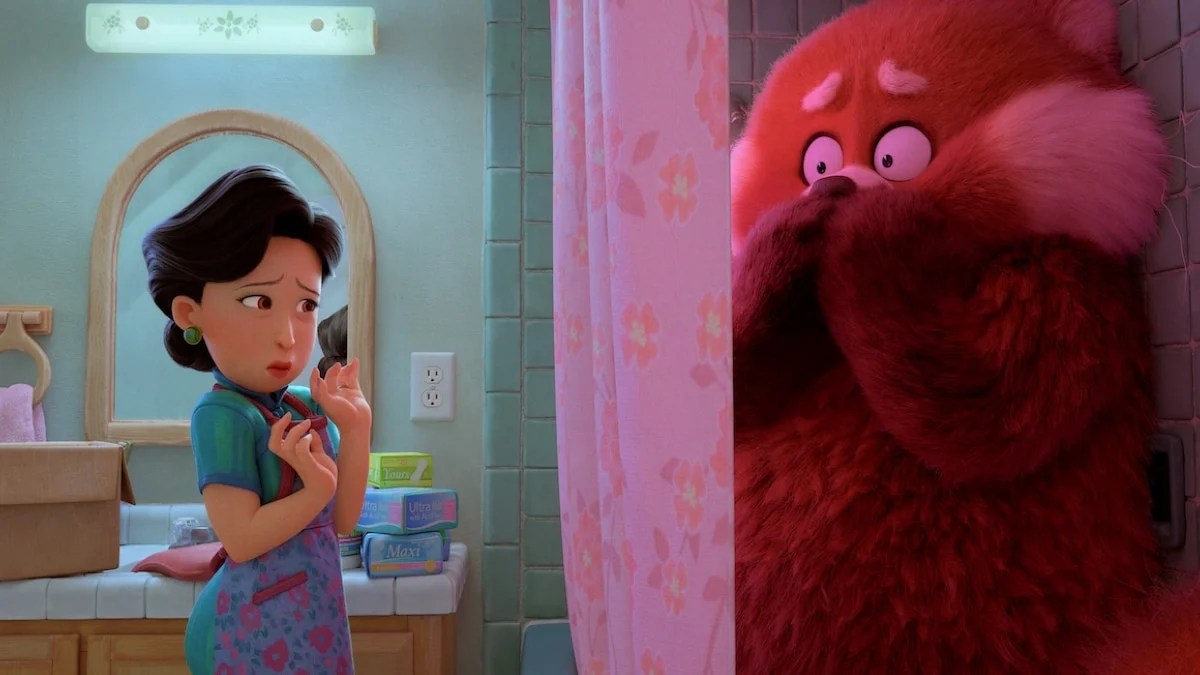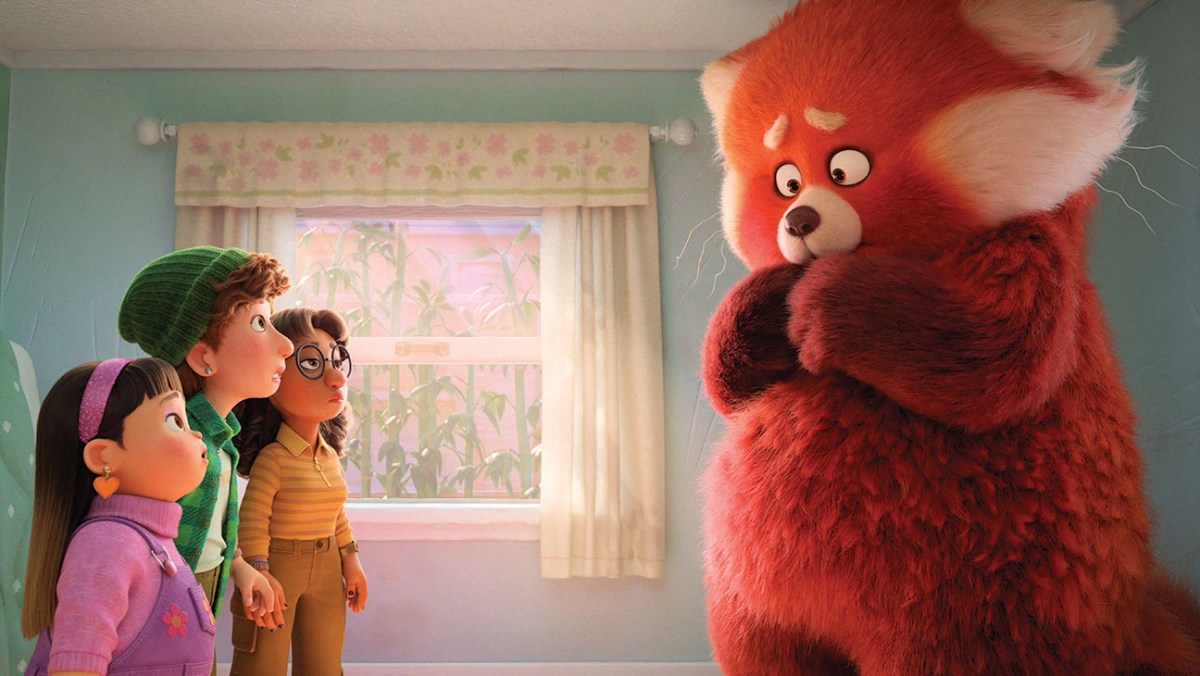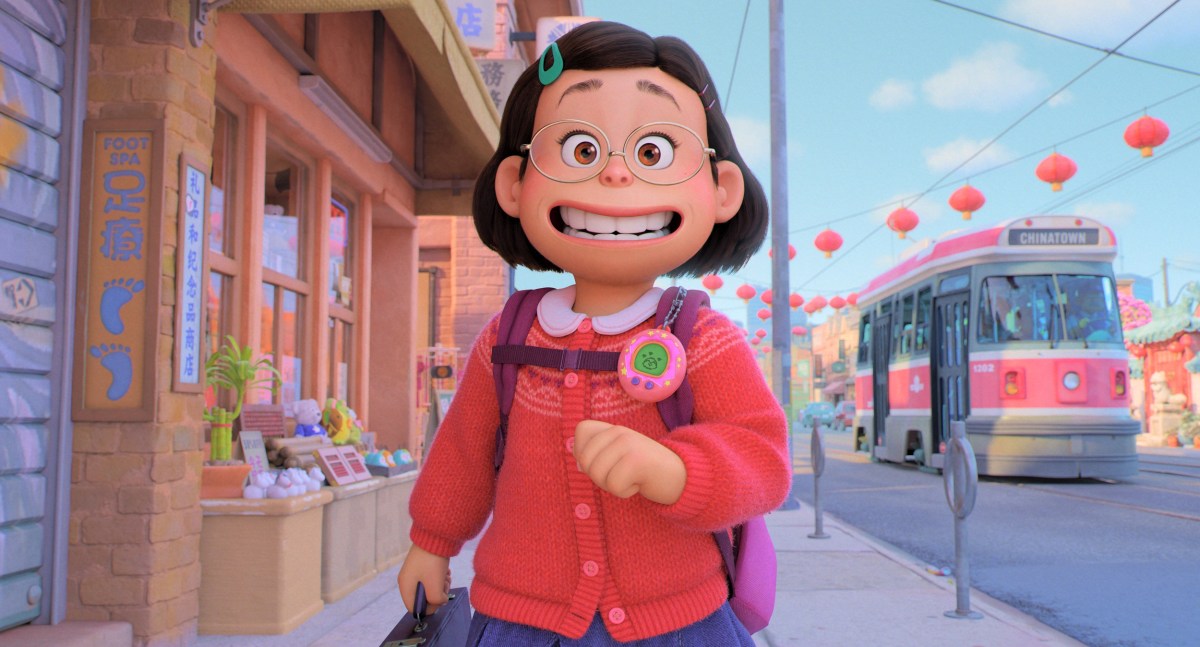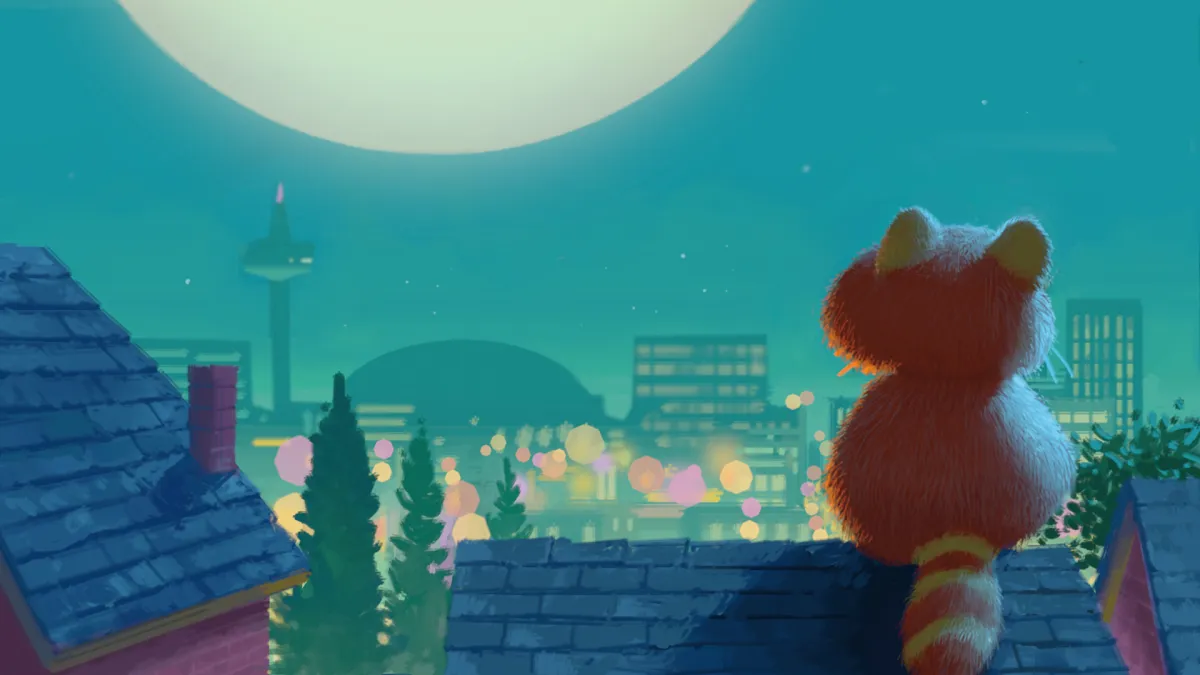Oh, my god. You ever cry so hard you get a headache? That’s what happened to me when I was done watching Pixar’s latest film, Turning Red.
I was so touched by this movie that I’d hoped others could share in my zeal for it, but things are never so straightforward or pleasant, are they? When I hopped on the internet, all I got was a bunch of discourse—nasty, nasty discourse—and even though I’m being jovial about it now, I can’t properly express how disappointing it is, as a person of color, to have your experience reduced by the shallow opinions of those who “can’t relate,” or won’t even try to.
So, in lieu of that, I won’t even try to summarize the “relatability” discourse surrounding this movie, because it’s all vapid and ridiculous. Instead, I want to detail just how relatable this movie is for people like me, and why it holds value both with and without that in mind.
A family of pandas

I grew up in a mixed-race household, with my mother being born in Hong Kong and later emigrating with her family to the Bay Area. The Hong Kong of the ’60s was still very British-influenced, and my grandparents were of mixed race themselves, so various traditionally Chinese customs weren’t as ingrained in her life.
That said, you can’t erase culture, nor can you erase identity, no matter how much others might convince you to try. I grew up with a mother so akin to Mei’s and found myself laughing constantly at little gestures and nods to such an upbringing throughout Turning Red. The helicoptering, the intensity, the insistent loyalty to her daughter, no matter what she did, while simultaneously being the most scrutinizing person on the planet—it was so, so accurate that I couldn’t help but squeak through waterfalls of tears and snot.
And Mei herself? Mei is exactly what it looks like when a westernized Asian girl is trying to find her way in a world that won’t let her be herself. Like Mei, I found commonality with nerds and outcasts growing up, because they were the only people who seemed to understand and embrace what it felt like to operate outside the “norm.” Like Mei, I felt like I couldn’t be who I really wanted to be, because god forbid I let my family know I was crushing on anarchist wizards in video games when I was supposed to be getting ready for college—or, even worse, that I wanted to go to parties and kiss real boys. And like Mei, no matter how painful it felt at times, being so isolated from a sense of peer camaraderie, I still felt utterly devoted to my family and their happiness (even if my teenage angst made it seem otherwise).
Oh, good lord, I cried so much seeing Mei just … being Mei. I felt so alone at her age, I can only imagine how validating it would have been to have this movie when I was younger—to know that the feelings I felt weren’t weird or out of place, that being “that kind of weird” wasn’t a bad thing, and to know that “being a Mei” isn’t something to cringe at or feel ashamed of. I looked at Mei as my adult self, and I felt so much love for everything about her, because Mei is me, and she’s my mom, and she’s everyone who’s ever felt what we’ve felt.
It’s not “versus” Encanto, you guys

This one really got to me—the argument that some people have been making that Turning Red is just a “knockoff Encanto.” I don’t even know where to begin with this. Even some content creators I respect have been making this comparison, calling Turning Red contrived and dull in comparison.
Do you guys realize that Latinx and Asian people are, you know … different? That generational trauma isn’t a vacuum of identical experiences, and that it’s okay to have multiple movies that showcase the different ways different people experience their lives? And that it’s kind of redundant to lump these movies together, just because they both feature WOC who go through familial pains?
Encanto is an awesome movie, and I love that it exists, but I didn’t enjoy it nearly as much as Turning Red for a variety of reasons—not just because of the relatability factors. That doesn’t mean it’s a bad movie, yet people are trying to ignore their own biases against Turning Red by making the argument that, compared to Encanto, it’s bad. Look, it’s an unfortunate coincidence that these movies came out so close to each other, but ultimately, it’s a coincidence, and if you’re among those making these comparisons, I implore that you examine why you’re doing it and what biases you’re bringing to the table.
Because there’s a chance that you’re not just comparing movies without any biases, “on the basis of quality.” You’re comparing two movies that carry strong ethno-cultural themes, in a world that is not at all “post-racial.” Please consider what subconscious biases you might be harboring in your critiques, and challenge them.
Let us have this

Maybe you’re still convinced that your negative opinions of Turning Red have to do with its overall quality. That’s totally fine; I won’t take that from you. In return, I only ask that you don’t take the movie from us. Full disclosure: I’m a judgmental person. Therefore, a movie won’t gain my favor solely on the basis of it being aligned with my interests. For instance, I love the music from the “riot grrrl” era, but I thought Moxie sucked supremely.
But with Turning Red, it’s different. It touched me on so many different levels, and it’s done the same for countless other people for all sorts of reasons. There has been so much violence against Asian Americans—not just in the past year, but for many years prior—and there is still a lot of ignorance surrounding our lives, our feelings, and our beliefs.
We are not just cutesy, silly ideas to commodify for the benefit of non-Asian people. We are an amalgamation of experiences that deserve to be honored with the same respect as anyone else, and after all the millions of animated movies about white people doing whatever they want (and still getting accolades, no matter how “contrived” the concept), we deserve a movie like this to call our own.
Let us have this. 4Town Forever, respectfully.
(featured image: Bill Cone Disney/Pixar)









